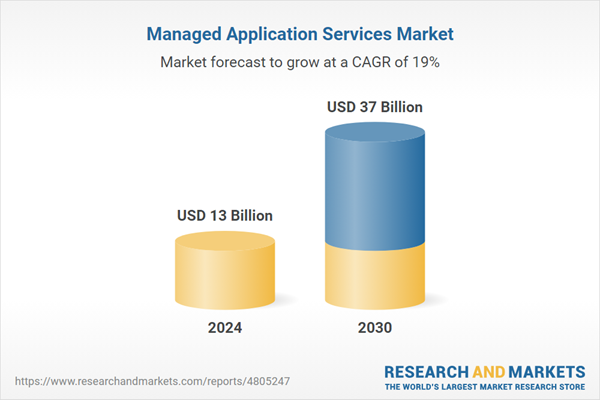Global Man Portable Military Electronics Market - Key Trends & Drivers Summarized
What Are Man Portable Military Electronics and Why Are They Essential in Modern Warfare?
Man portable military electronics encompass a wide range of lightweight, ruggedized electronic devices designed for use by military personnel in the field. These devices, which include communication systems, GPS units, surveillance tools, and battlefield management systems, are engineered for ease of transport and durability in challenging environments. The increasing reliance on digital technology and real-time data in modern warfare has made man portable electronics essential for maintaining battlefield awareness, ensuring secure communications, and enhancing operational efficiency. Soldiers equipped with these devices can make rapid, informed decisions, improving the overall effectiveness of military operations. As military strategies evolve to focus more on mobility, agility, and technological superiority, the demand for advanced man portable electronics continues to grow.How Are Technological Advancements Enhancing the Capabilities of Man Portable Military Electronics?
Technological advancements are revolutionizing the capabilities of man portable military electronics, enabling soldiers to perform a broader range of tasks with greater efficiency and precision. The integration of artificial intelligence (AI) and machine learning (ML) into these devices allows for faster data processing, improved decision-making, and enhanced threat detection. Additionally, advancements in miniaturization and power efficiency have enabled the development of more lightweight, long-lasting devices that can be carried without hindering mobility. Enhanced communication systems, such as software-defined radios (SDRs), provide secure, multi-band connectivity, ensuring that soldiers remain connected even in complex or contested environments. The growing use of augmented reality (AR) and heads-up displays (HUDs) is also transforming situational awareness, providing real-time visual information and data overlays without distracting soldiers from their mission.What Challenges Do Military Forces Face in Deploying Man Portable Electronics?
Despite the critical role of man portable military electronics, their deployment poses several challenges. One of the primary concerns is ensuring the durability and reliability of these devices in extreme battlefield conditions, such as high temperatures, humidity, and rugged terrain. Military electronics must be able to withstand harsh environments while maintaining functionality and security. Another challenge is power management, as many portable devices rely on batteries that must last throughout a mission or be easily rechargeable in the field. Ensuring secure and resilient communication in contested or electronically jammed environments is another critical challenge, particularly as adversaries develop more sophisticated electronic warfare capabilities. Lastly, integrating these technologies seamlessly into existing military infrastructure and ensuring interoperability between different systems and platforms is an ongoing challenge that requires careful planning and coordination.Growth in the Man Portable Military Electronics Market Is Driven by Several Factors
The growth in the man portable military electronics market is driven by several factors, including advancements in military technology, increasing global defense spending, and the rising need for lightweight, high-performance equipment in modern combat scenarios. Technological innovations such as AI, machine learning, and real-time data processing are enhancing the capabilities of portable military electronics, allowing soldiers to operate more effectively in dynamic battlefield environments. Additionally, the growing complexity of military operations, particularly in urban and asymmetric warfare, has increased the demand for systems that provide real-time situational awareness, secure communications, and tactical decision support. Defense modernization programs across the globe, aimed at equipping soldiers with state-of-the-art tools, are further fueling market growth. These trends, combined with a greater emphasis on mobility and the integration of advanced digital technologies, are expected to drive continued expansion in the man portable military electronics market.Report Scope
The report analyzes the Managed Application Services market, presented in terms of market value (USD). The analysis covers the key segments and geographic regions outlined below.- Segments: Service (Operational Services, Application Service Desk, Application Hosting, Application Security & Disaster Recovery, Application Infrastructure); End-Use (BFSI, IT & Telecom, Government, Retail & eCommerce, Healthcare & Life Sciences, Manufacturing, Energy & Utilities, Other End-Uses).
- Geographic Regions/Countries: World; United States; Canada; Japan; China; Europe (France; Germany; Italy; United Kingdom; and Rest of Europe); Asia-Pacific; Rest of World.
Key Insights:
- Market Growth: Understand the significant growth trajectory of the Operational Services segment, which is expected to reach US$14.5 Billion by 2030 with a CAGR of 20.6%. The Application Service Desk segment is also set to grow at 18.3% CAGR over the analysis period.
- Regional Analysis: Gain insights into the U.S. market, valued at $3.8 Billion in 2024, and China, forecasted to grow at an impressive 18.3% CAGR to reach $5.7 Billion by 2030. Discover growth trends in other key regions, including Japan, Canada, Germany, and the Asia-Pacific.
Why You Should Buy This Report:
- Detailed Market Analysis: Access a thorough analysis of the Global Managed Application Services Market, covering all major geographic regions and market segments.
- Competitive Insights: Get an overview of the competitive landscape, including the market presence of major players across different geographies.
- Future Trends and Drivers: Understand the key trends and drivers shaping the future of the Global Managed Application Services Market.
- Actionable Insights: Benefit from actionable insights that can help you identify new revenue opportunities and make strategic business decisions.
Key Questions Answered:
- How is the Global Managed Application Services Market expected to evolve by 2030?
- What are the main drivers and restraints affecting the market?
- Which market segments will grow the most over the forecast period?
- How will market shares for different regions and segments change by 2030?
- Who are the leading players in the market, and what are their prospects?
Report Features:
- Comprehensive Market Data: Independent analysis of annual sales and market forecasts in US$ Million from 2024 to 2030.
- In-Depth Regional Analysis: Detailed insights into key markets, including the U.S., China, Japan, Canada, Europe, Asia-Pacific, Latin America, Middle East, and Africa.
- Company Profiles: Coverage of players such as 360 Smart Networks, 365Hosts, 4 Pillars IT, Adacor, Agira Technologies and more.
- Complimentary Updates: Receive free report updates for one year to keep you informed of the latest market developments.
Some of the 94 companies featured in this Managed Application Services market report include:
- 360 Smart Networks
- 365Hosts
- 4 Pillars IT
- Adacor
- Agira Technologies
- Allstream Business Inc.
- apiiro
- AppsForte, Inc.
- autowork GmbH & Company KG
- Avasta
This edition integrates the latest global trade and economic shifts into comprehensive market analysis. Key updates include:
- Tariff and Trade Impact: Insights into global tariff negotiations across 180+ countries, with analysis of supply chain turbulence, sourcing disruptions, and geographic realignment. Special focus on 2025 as a pivotal year for trade tensions, including updated perspectives on the Trump-era tariffs.
- Adjusted Forecasts and Analytics: Revised global and regional market forecasts through 2030, incorporating tariff effects, economic uncertainty, and structural changes in globalization. Includes historical analysis from 2015 to 2023.
- Strategic Market Dynamics: Evaluation of revised market prospects, regional outlooks, and key economic indicators such as population and urbanization trends.
- Innovation & Technology Trends: Latest developments in product and process innovation, emerging technologies, and key industry drivers shaping the competitive landscape.
- Competitive Intelligence: Updated global market share estimates for 2025, competitive positioning of major players (Strong/Active/Niche/Trivial), and refined focus on leading global brands and core players.
- Expert Insight & Commentary: Strategic analysis from economists, trade experts, and domain specialists to contextualize market shifts and identify emerging opportunities.
Table of Contents
Companies Mentioned (Partial List)
A selection of companies mentioned in this report includes, but is not limited to:
- 360 Smart Networks
- 365Hosts
- 4 Pillars IT
- Adacor
- Agira Technologies
- Allstream Business Inc.
- apiiro
- AppsForte, Inc.
- autowork GmbH & Company KG
- Avasta
Table Information
| Report Attribute | Details |
|---|---|
| No. of Pages | 222 |
| Published | February 2026 |
| Forecast Period | 2024 - 2030 |
| Estimated Market Value ( USD | $ 13 Billion |
| Forecasted Market Value ( USD | $ 37 Billion |
| Compound Annual Growth Rate | 19.0% |
| Regions Covered | Global |









